Experts Discuss The New, Technology-Enabled Health Care Model at HTF Conference
Posted by: Quinne Fokes
Website: www.quinnedesign.com;
Contact: q@quinnedesign.com – 415-482-7926
On May 20, over 70 speakers discussed how technology can enable affordable, executable and accessible healthcare at the 2014 Health Technology Forum Innovation Conference – pathways to sustainable health.
A key session moderated focused on the new, technology-assisted healthcare model. This panel was moderated by Dr. Anthony Nguyen, Chief Medical Officer at Cognizant Technology Solutions and featuring Dr. Aradhana Ghosh, Vice President, Medical Affairs – McKesson Technology Solutions, Pat Basu, Chief Medical Officer at Doctors on Demand and Dr. Bruce Chenoff, President and CEO of The SCAN Foundation.
Applications are emerging in three areas of health care covered by our panelists:
- Non-emergency care,
- Oncology care during the curative stage and
- Health care for older people.
In these areas, there is a huge opportunity for apps assisting with medication management, public and private support networks, billing, scheduling, and personalized self care.
While health coaches provide excellent guidance for many health care issues, in the United States this solution is sometimes cost prohibitive. One alternative is a health application whereby an on-call doctor from a network of physicians is “delivered” via your smart phone for non-emergency care, and there is a promise of behavioral health care being delivered in a similar manner by this summer.
When you’re dealing with a non-emergency medical issue such as a cold or the flu, making a doctor’s visit less stressful for the patient is just one goal for technology along with providing improved access to a doctor, a lower cost for treatment and eliminating the chance of flu or other viruses being shared in a crowded waiting room.
Given the level of fear around cancer and cancer treatments, empowering patients helps to provide a much needed sense of having control over their predicaments. Apps for cancer patients would help patients by aiding them to better manage their own care during the curative stage. Given the complexity of cancer treatment medications and side effects, pharmacists need to be better integrated into the healthcare system for oncology patients, as well as for treatment of the general population of patients.
Apps for older people would need to deliver on the promise of allowing them to stay in their homes safely, for as long as possible, while returning dignity and choice to these patients and their care givers. A key element in the treatment of elderly people is building a core plan that returns value to the family. Without centralized care for older patients, treating physicians may not know the history of the patient, and might therefore recommend inappropriate acute care in a hospital and/or treatment that cannot be delivered effectively and safely by patients’ care givers at home.
With a preponderance of apps — by 2015 an estimated 500 million people will be using a health app — how will consumers know which ones to use? Questions of how to address and communicate safety and effectiveness are being considered by the FDA, and none too soon. At present only about 40% of health and fitness apps are truly related to health care, and it is challenging for consumers to determine what’s useful and what’s not.
As these issues are resolved and as the marketplace matures for mobile and other technology-enabled health applications we can expect to see mobile solutions integrated into medical, health and wellness workflows and best practices.
About Health Technology Forum


